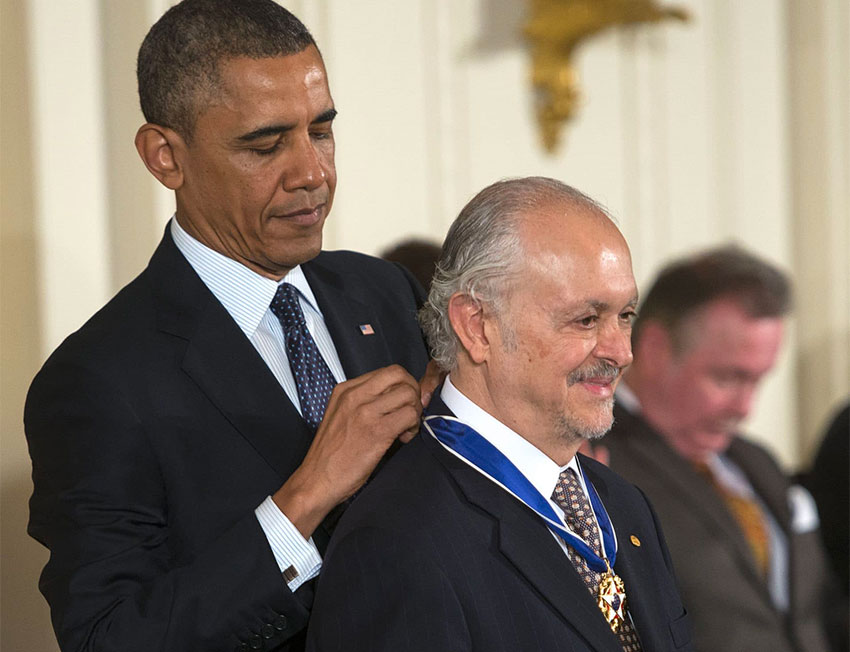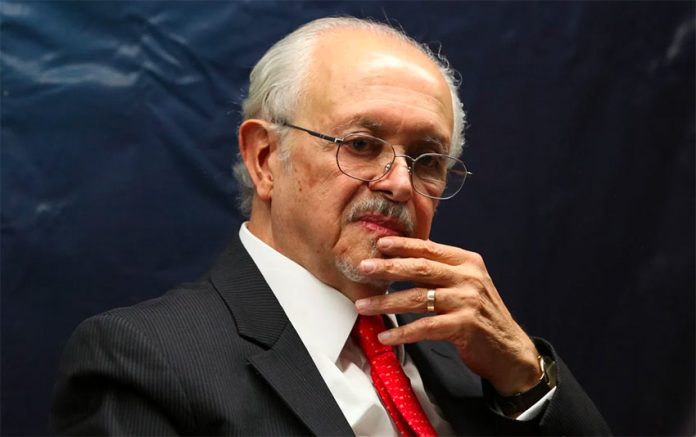The only Mexican scientist to have won the Nobel Prize passed away this week in his native Mexico City.
Mario Molina, joint winner of the Nobel Prize in Chemistry in 1995 and a leading voice in the fight against climate change, suffered a heart attack on Wednesday. He was 77.
Molina’s family announced his death in a statement issued by the Mario Molina Center for Strategic Studies on Energy and the Environment, an independent non-profit association.
“It is with deep sorrow that we inform you of the passing of Mario J. Molina, who died today in his house in Mexico City,” the statement said.
“Dr. Molina is an example to the world, he dedicated his life to research and working in favor of protecting our environment. He will always be remembered with enormous pride and gratitude.”
Born in Mexico City in 1943, Molina entered the National Autonomous University in 1960 to study chemical engineering. He completed postgraduate studies in Germany and the United States and in 1973 joined the team of Frank Sherwood “Sherry” Rowland at the University of California, Irvine.
Molina and Rowland published a groundbreaking paper in 1974 that demonstrated that chlorofluorocarbons (CFCs) – chemicals used in products such as refrigerants and solvents – have a damaging effect on the ozone layer. Molina said in an interview that before the research paper was published, CFCs were not thought to have a significant impact on the environment.
In 1995, the two scientists, along with Dutch chemist Paul Crutzen, won the Nobel Prize “for their work in atmospheric chemistry, particularly concerning the formation and decomposition of ozone.”
Molina’s work contributed to the drafting of the Montreal Protocol on Substances that Deplete the Ozone Layer, which entered into force in 1989 and phased out the use of CFCs.
Later in his career, Molina dedicated much of his time to seeking solutions to air pollution in large cities, including Mexico City. He also advocated for global actions to promote sustainable development.
Molina was a member of the National Academy of Sciences in the United States and for eight years was one of 21 scientists who constituted former U.S. president Barrack Obama’s Council of Advisers on Science and Technology. In 2013, he received the Presidential Medal of Freedom from Obama for his work on combatting climate change.

“The Nobel is given for work that you do in your field. But the Presidential Medal of Freedom is given for people who are thought to have had an impact on society. This is really an incentive to keep working on the issues that I have been involved with, including climate change,” Molina said shortly after receiving the award.
In 2017 he described the environmental policies of the administration of President Donald Trump, who withdrew the United States from the Paris Agreement on climate change, as “irrational.”
The denial of climate change and the denial of the benefits science can bring to the world is “alarming,” Molina told the newspaper El País three years ago.
With his passing, Mexico no longer has a living Nobel laureate. Alfonso García Robles, who won the Nobel Peace Prize in 1982 for his work toward nuclear disarmament, died in 1991, while Octavio Paz, who won the Nobel Prize in Literature in 1990, passed away in 1998.
Molina’s death, coincidentally on the day this year’s Nobel Prize in Chemistry was awarded, was acknowledged by several members of the federal government, including President López Obrador.
“I lament the death of Dr. Mario Molina Pasquel y Henríquez, an outstanding Mexican scientist, defender of the environment and Nobel Prize winner in chemistry. A hug to family and friends,” he wrote on Twitter.
Mexico City Mayor Claudia Sheinbaum, who appeared with Molina at a recent video conference, said on Twitter that one of Mexico’s greats had died.
“He dedicated his life to … helping to improve the environment and the natural resources of our planet and our city.”
Source: Milenio (sp), El País (sp), Associated Press (en)
